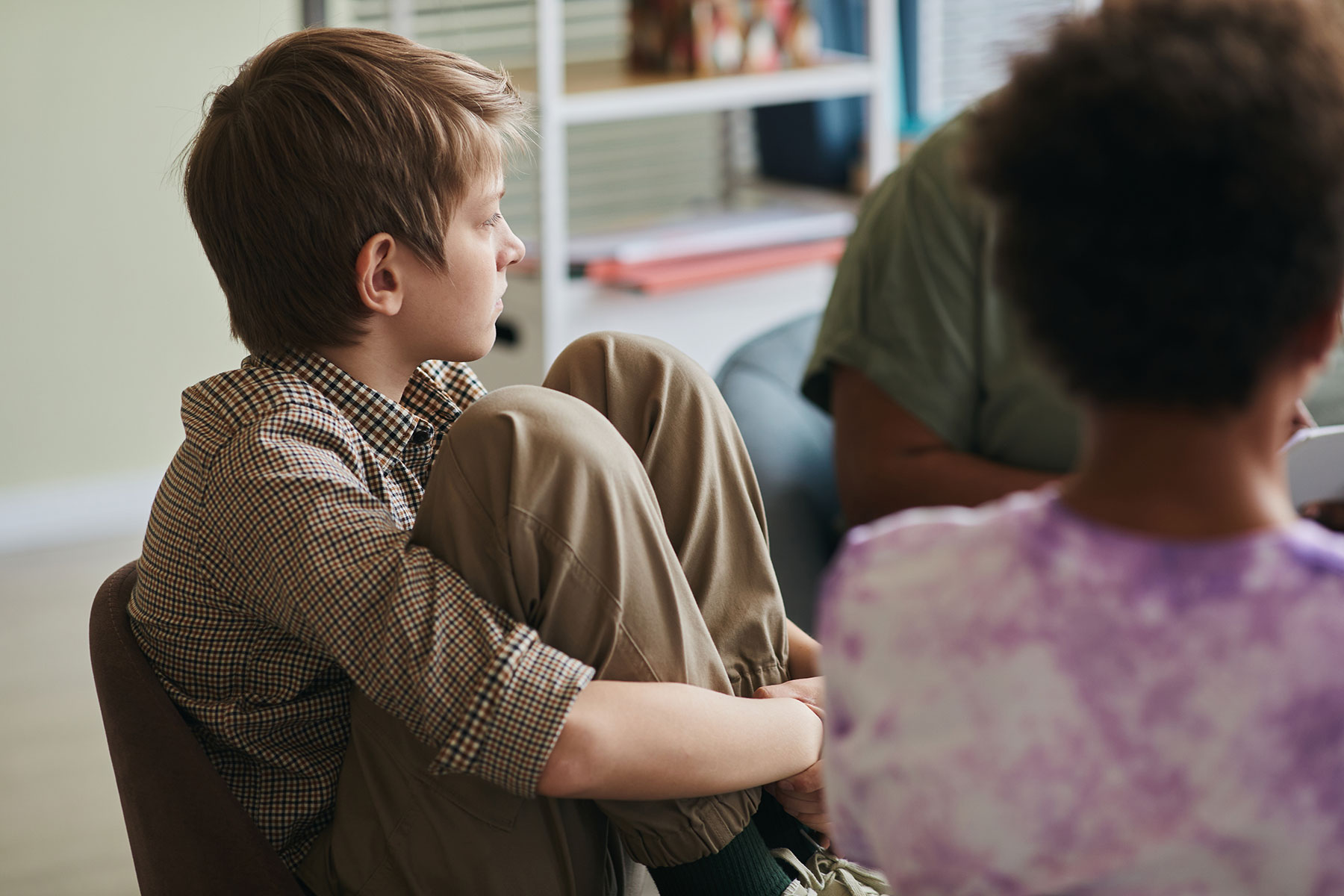Trauma affects teens in ways that interfere with their mental well-being as well as their everyday lives. At our centre, we offer teen trauma therapy to help them recover. Learn more about the signs of teen trauma and how you can provide support by calling Venture Academy at 866.762.2211 or contacting us online.
Symptoms of Distress: Signs of Teen Trauma
A teen can display a number of symptoms of childhood trauma. Catching these signs as quickly as possible and getting your teen help is crucial.
1. Problems with Sleep
The teenage years are when the body needs the most sleep, so if you see that your teen struggles to sleep, this is a warning sign. Sleep problems can also manifest as your teen having lots of nightmares or even experiencing night terrors. Night terrors are one of the most common symptoms of childhood trauma.
2. Mood Swings and Irritability
Teenagers are known for being moody, but there are predictable patterns within that moodiness. As their parent, you have an idea of what upsets them or irritates them. However, if you notice strange and abrupt changes in their behaviour, this can be one of the symptoms of distress. Irritability that goes beyond the norm is something to watch for.
3. Experiencing Flashbacks
Just like people who have PTSD, traumatised child behaviours include experiencing flashbacks of the event that caused trauma. Various factors can trigger these flashbacks, including:
- Places and people that remind them of the event
- Sounds and smells
- An unrelated stressful experience
The anniversary of the traumatic event is also likely to cause flashbacks.
4. Extreme Levels of Anxiety
Living through a traumatic event leaves a teen with a heightened sense of fear. Another of the signs of trauma in adolescence is seeing your teen experiencing anxiety about everyday activities. The anxiety can make them avoid certain places or situations, and some teens may also experience panic attacks.
5. Numbness
Another of the signs of teen trauma is seeing your teen begin to withdraw and isolate. You may notice that they have a flat affect when they speak. When trauma has caused overwhelming distress, sometimes the mind withdraws into numbness as a protective mechanism.
How to Provide Support
If you’ve noticed traumatised child behaviours, offering your teen support is essential. Reassure them. Going through trauma makes a teen feel as though their world is no longer stable, so giving them structure and a safe environment in which they can relax helps lower anxiety levels.
Trying to avoid causing your teen pain is normal, so you may not want to talk about the traumatic experience. This doesn’t help. It’s better to calmly speak through what happened and check what your teen is feeling. You can also set an example by talking about something that affected you in your life, letting them know you understand what they’re struggling with.
Listen to what your teen has to say. Don’t judge what your teen feels or thinks, even if you don’t agree with it. Validate what they’re struggling with so they know they’re heard.
If you see that the signs of trauma in adolescence don’t get any better, the next step is to get your teen professional help. Turning to therapy and centres that offer guidance will help them come to terms with the traumatic experience.
Venture Academy Is Here to Provide Support for Teen Trauma
Seeing your teen battling with trauma is devastating, but there is help available. At Venture Academy, we offer behavioural treatment programs that provide the support that teens struggling with mental health concerns and trauma need.
Don’t wait another day to get your teen the help they need. Call Venture Academy today at 866.762.2211. You can also fill out our online contact form and let us get back to you.







